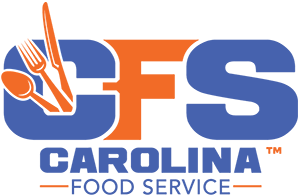
Honoring Our Commitment to Business Process Improvement

The growth rate in the food industry is continually threatened by numerous challenges. One such challenge is the rising cost of food items. According to the U. S. Government Accountability Office, U.S. customers witnessed the largest annual increase in food prices since the 1980s in 2022. In previous years, food prices generally increased by 2% every year until 2021/2022 when it skyrocketed a whopping 11%.
Another major challenge that businesses in the food industry face is food waste. According to the U.S. Department of Agriculture (USDA), at least 33% of all available food in the country is left uneaten. More than the obvious economic impact food loss has on food businesses, it also harms the environment and raises ethical concerns.
Food businesses also have opportunities to help ensure a more responsible and profitable industry for both business owners and customers. For example, food supply chains can employ business process improvement (BPI) best practices to significantly avoid the likelihood of a food crisis in the USA.
What is Business Process Improvement?
Business Process Improvement (BPI) first refers to the practice of analyzing your business operations to pinpoint areas where you're lagging or opportunities for growth. Then, it also describes the actions you take to trigger positive changes in those areas. In other words, BPI identifies business operational flaws and areas for improvement to propel you to take the right actions necessary for overall business efficiency.
For example, one of the challenges you may face as a Hispanic restaurant owner are unavailable food choices. If you have identified this as a problem, BPI mandates that you brainstorm ways to ensure that the food listed on your menu is consistently available for customers. To do this, you will have to evaluate your business processes to determine where the problem lies.
After a thorough analysis, you may discover that the problem is from a supply chain disruption that led to a shortage of raw food items to prepare the meals. In that case, you can engage the services of a more reliable and reputable supplier to ensure that quality ingredients are always delivered at the right time. This is a perfect example of how BPI works to improve business operations and drive growth.
In essence, BPI helps to improve business effectiveness and efficiency by discovering, analyzing, and redesigning processes. With proper business process improvement strategies, food establishments will have happier staff, smoother operations, and witness unprecedented efficiency in their workflows. This kind of proactive thinking is key to the evolving future of food service.
How BPI Reduces Food Waste and Decreases Customer Costs: The Carolina Food Service Example
As a foremost broadline food distributor in the Carolinas, we understand how important we are in solving challenges that affect the industry. That is why we have improved on our processes to ensure that we play our part in reducing food waste and reducing customer costs.
At Carolina Food Service, we believe in constantly streamlining our operations to ensure that they are more productive, effective, and cost-efficient. This includes prioritizing the following:
Speedy Deliveries
One of the key factors in reducing food waste is ensuring that food items, especially perishables, reach customers quickly. Reducing transit times helps to reduce the risk of spoilage.
With our customers relying on our commitment to speedy delivery, they don't have to order a surplus. As such, they can totally eliminate food waste associated with excess inventory. With less waste to worry about, restaurant owners can now focus on getting the best monetary value for every food item ordered.
Demand Forecasting and Improved Inventory Management
Demand forecasting refers to the process of predicting customer demands in line with historical data. With accurate demand forecasting, we are able to stock the right amount of food items seasonally to reduce the chances of food waste. This also ensures that we deliver fresh and top-quality food items to our customers at all times.
We also have effective inventory management tools in place to ensure that we make informed/data-driven decisions anytime we need to make fresh orders. So, while we wouldn't overstock food products, restaurants can always be sure that the exact quantity they need will be available for delivery.
Competitive Market Prices
At Carolina Food Service, we prioritize value. We understand your desire as a restaurant business owner to maximize profits as much as it's reasonably possible. That's why we have eliminated the use of middlemen and other intermediaries.
With us, you can trust that you're getting the best market prices for your items at every point in time. By selling our products at the most reasonable prices, we are also playing our part in reducing the cost of food items both for our customers and the final consumers.
Quality Storage Facilities
Restaurants will always need quality storage facilities to keep their raw items fresh prior to preparation. Unfortunately, not every food business has the luxury of adequate storage spaces. At Carolina Food Service, we maintain expansive food storage facilities. This keeps your items fresh and ready to order.
Make a Commitment to Process Development With Us
One of our primary goals is to ensure that the food establishments we serve grow as we grow. As a leader in broadline food distribution, we are privy to insights, opportunities, and resources that your business can leverage to thrive. From improving your food menus to optimizing your operations through BPI, we want you to be our trusted partners in improving the US food industry.
Ready to partner with Carolina Food Service of Loris? Contact us today!